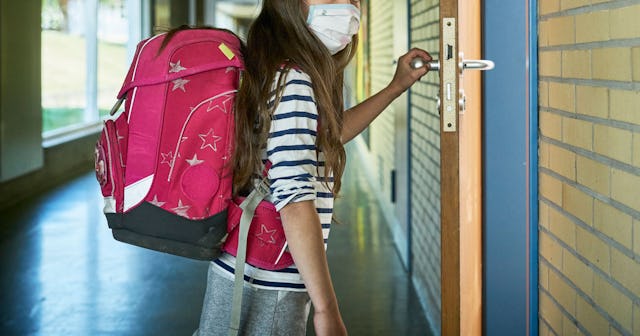Schools Are Scrambling For Subs As Omicron Surge Continues

As cases of the omicron variant of COVID-19 continue to surge across the U.S., schools sticking with in-person learning are struggling to find enough substitutes to stay fully staffed
As omicron continues its fast-spreading surge across the U.S., close to a million new infections are being recorded nationwide each day. And while there’s some hopeful evidence that omicron tends to cause less severe disease than previous variants of the coronavirus, the sheer number of cases is causing massive disruptions because of how many people, even those who are fully vaccinated, are becoming infected and needing to isolate. That’s especially true in schools that are sticking with in-person learning, where many districts are struggling to find enough substitute teachers to keep up staffing levels.
Principals, superintendents, and counselors are filling in across the country. In Cincinnati, dozens of employees from a district’s central office were dispatched to teach at schools in danger of closing because of low staffing levels. The superintendent of Boston schools, Brenda Cassellius, was forced to fill in for a fifth grade teacher. San Francisco’s superintendent, Vince Matthews, has asked every school district employee with teacher credentials to step in after 600 of the district’s 3,600 teachers called in sick in a single day.
“This is the most challenging time in my 36 years as an educator,” Matthews said during a break from substituting in a sixth grade class. “We’re trying to educate students in the middle of a pandemic while the sands around us are consistently shifting.”
Some of the country’s biggest districts, including Atlanta, Detroit, and Milwaukee, have switched to remote learning to help them ride out the omicron wave. In Chicago, classes have been canceled all week as the teacher’s union calls for remote learning, and the mayor refuses to allow it. But in schools powering forward with in-person classes, the effects of omicron are clear and disruptive.
“All of these additional burdens and stresses on top of being worried about getting sick, on top of being stressed like all of us are to after a two-year pandemic,” Becky Pringle, president of the National Education Association, told the Associated Press. “It just compounded to put us in a place that we are now.”